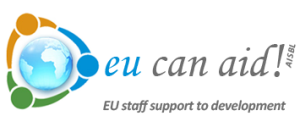Pas disponible en français
Integrated program in Marumba Village, Tanzania
An efficient way to lift people out of poverty
A multifaceted action causing long lasting effects and sustainable impact
Join us in supporting this program and follow here its realisation!
eu can aid! and Tanzania Development Trust (TDT) – a London based Charitable Trust – have developed a joint program to support Tanzanian Marumba village’s inhabitants in setting a three years integrated program so to help them to reach self-sufficiency and a better quality of life.
Area profile
Marumba village is one of the most vulnerable villages in district Nanyumbu (one of the capital city Mtwara district) due to its remoteness and geologic site. It is located at the border of Tanzania and Mozambique, southwest of the Indian Ocean.
The village has a population of about 2,700, with a high rate of illiterate (40%) and most of them live under the poverty line, with 1 § per day.
Only the 30% live in houses made of cement bricks covered with iron sheet roofs, 65% of the houses are made of trees and mud covered by grass rooves and 5% are living in houses completely made of grass.
Most of the people are dependent on agriculture and animal keeping as source of food, employment and other basic needs like shelter, education, clothes and transport.
Before the program setting.
Existing installations
- There is one newly built dispensary – including one staff house – with two staff (1 clinical officer and 1 nurse)
- There is an underground water tank with a capacity of carrying 145,000 liters of water, which somehow serves the dispensary and patients.
- There is one primary school at the village with 145 pupils and 5 teachers, 4 classrooms and two rudimental toilets
Rationale of the program and identified urgent needs
- WATER SHORTAGE
There is a serious water shortage in Marumba village whereby people are walking 20kms – 6 hours per day – to find water in the Ruvuma River.
The most vulnerable are women and girls who normally perform triple roles in the community, domestic roles included. Girls are particularly affected: stunted growth and poor school attendance have been identified.
Providing a borehole at Marumba village has been identified to solve at least a main part of the problem.
- SOLAR POWER
There is critical problem of light and especially at night at Marumba dispensary; the medical staff is forced to use kerosene lamps and torches to help patients who come to seek services at night – mostly pregnant mothers in labour. A poor performance within the health services has been observed.
Installing solar power at the dispensary is an urgent need.
- INCOME GENERATION
Most households – especially vulnerable groups as widows, mentally disabled children, and leprosy victims are facing life hardships. Poorly built houses, very low incomes, food insecurity, poor management of their day-to-day life are the direct consequences of a consistent lack of income.
Because their low level of knowledge and skills, villagers run their agricultural activities and small-scale projects unprofitably.
Initiatives like bee keeping programs, goat keeping, garden projects and access to microfinance to start small business activities are an excellent approach to help these marginalized people to overcome extreme poverty.
- CLASSROOM FOR PRIMARY SCHOOL
In Marumba, there are only 4 classrooms while the need is to have 10 classrooms.
Most of courses are given under the trees, which, especially in the rain season causes lot of absenteeism and at mid-term will increase illiteracy and poor knowledges.
The construction of a classroom for 45 pupils is a first step to improve Marumba villagers’ education and skills according to the Primary School Development Strategy implemented by the Tanzanian Government.
This program, proposed by the people at Marumba Village and discussed with the main stakeholders – Villagers, TDT and ECA – , has the full support of the United Republic of Tanzania through its local authorities. It builds upon the local community participation with a direct support and monitoring of the local project officers from TDT.
Program year one: September 2015 – September 2016
- Solar power at the dispensary
- Construction of a classroom in the primary school
- Creation of a borehole and a water tank
Program year two: September 2016 – September 2017
- The construction of two further classrooms –Cost: 7,000 €
- The construction of 8 toilets – Cost: 4,000 €
- The installation of water tanks collecting water of the roof – Cost: 4,000
Program year three: September 2017 – September 2018
- Solar power to the primary school
- Local environment strengthen
- Beekeeping
Extended program September 2018 – September 2021
April 2020: a grant of 450 € was given to the dispensary medical staff to buy material to prevent COVID-19 contamination and protect the workers.
